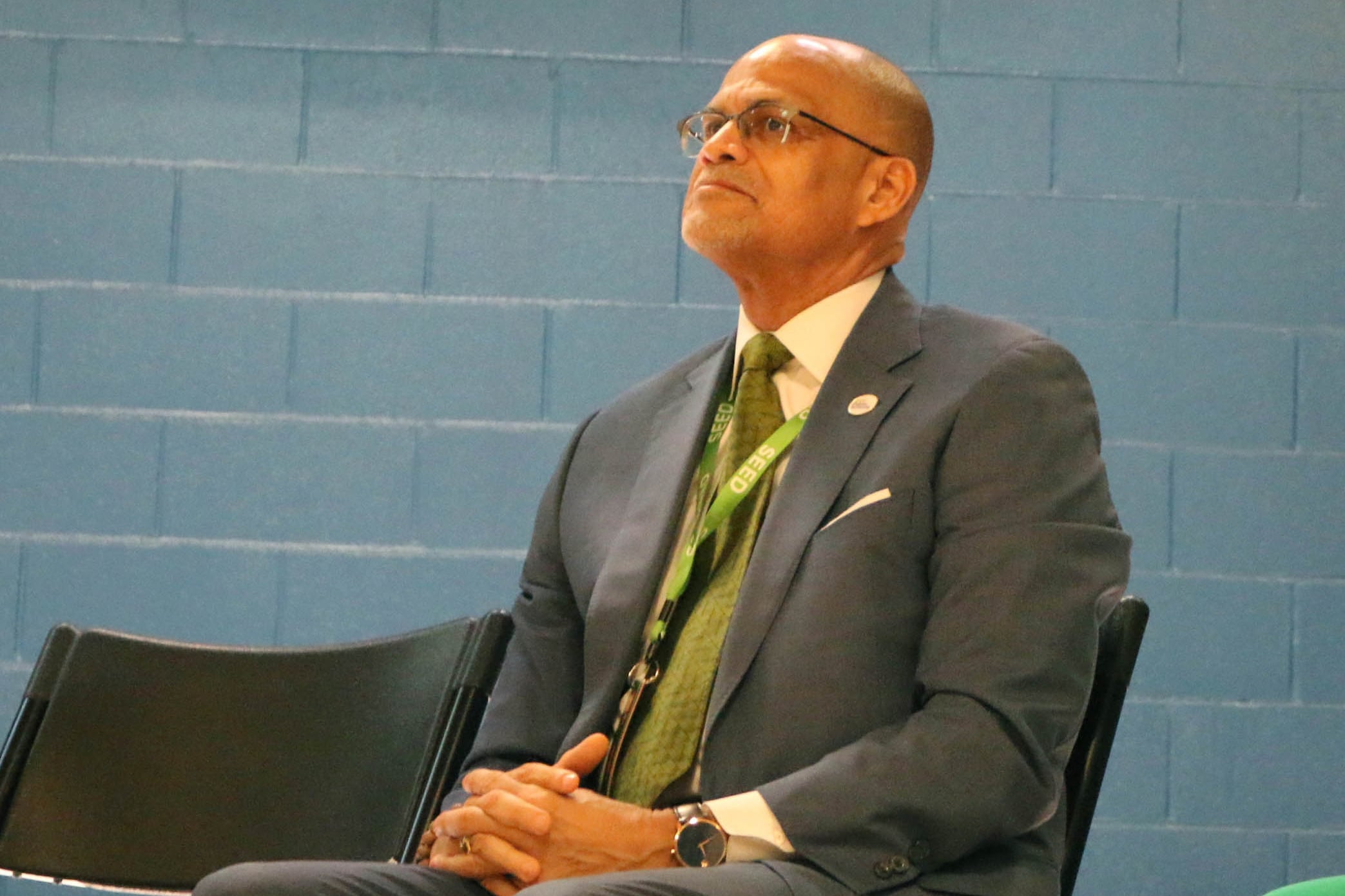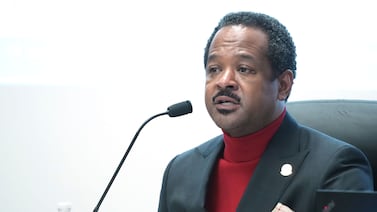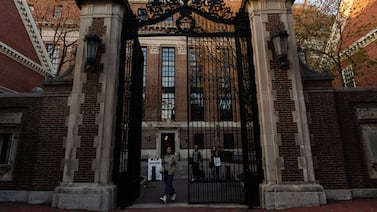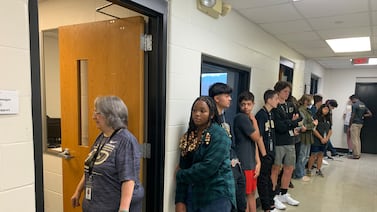Sign up for Chalkbeat New York’s free daily newsletter to keep up with NYC’s public schools.
Will they or won’t they? That’s the question many New Yorkers are asking about a citywide school cellphone ban.
Over the past six months, schools Chancellor David Banks has swung back and forth: from largely dismissing the idea in March, to hinting a citywide ban would come in a matter of weeks over the summer, to once again casting doubt on the fate of the proposal on Thursday.
“Who knows, we may not do a full-on ban, period,” he told leaders on his parent advisory council. “Ultimately, at the end of the day, that’s still the mayor’s call to make.” (And it was indeed Mayor Eric Adams who first announced during a late August press conference that the city was pumping the brakes on a systemwide ban,.)
City officials plan to take the year to study the approaches of the schools that already ban phones to figure out what works best. Roughly 350 schools had their own bans at the end of last year, and another 500 plan to implement them this year, Banks said.
If there is a citywide ban, it won’t come until next school year at the earliest. And these bans can be pricey: storage and staffing for collecting phones can add up, as do the pouches that some schools buy for students to carry their phones locked away. Those cloth cases cost $25-$30 per student. Banks acknowledged Thursday that the city would likely have to front that cost if he imposes a systemwide ban.
The chancellor, who is currently caught in a federal investigation, made light of his predicament, in which FBI agents seized his phone, along with those of other top officials, before the first day of school.
“I think they heard I was trying to do a cellphone ban in New York, so they decided to let me see what it feels like,” he told parent leaders Thursday. Banks is cooperating with the investigation but was told he was not a target, he said Thursday on WNYC.
To help you make sense of the phone ban back-and-forth, Chalkbeat created a timeline of Banks’ public statements.
The timeline traces Banks’ personal evolution on the idea, but also provides some insight into why it’s been so complicated to settle on a policy for banning phones in the nation’s largest school system.
Michael Elsen-Rooney is a reporter for Chalkbeat New York, covering NYC public schools. Contact Michael at melsen-rooney@chalkbeat.org.






